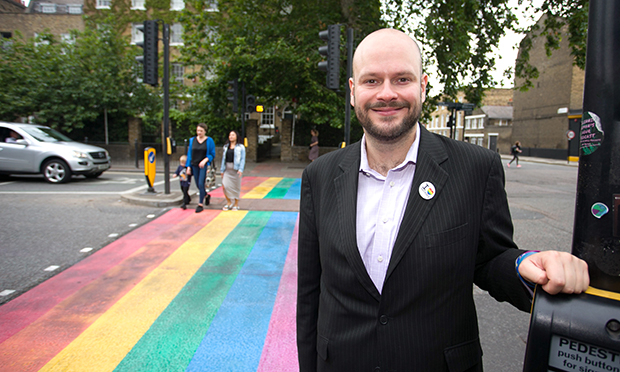VIDEO: Interview with the Mayor of Hackney on coronavirus and lockdown

Hackney Mayor Philip Glanville has this week addressed the impact of the global coronavirus pandemic in an exclusive interview with the Citizen.
In the interview, conducted on Tuesday 5 May, Mayor Glanville discusses the impact of the virus on the community of which he is the directly elected leader, as well as the economic shock of lockdown and what it means for both the borough’s people and the local authority itself.
For those wanting to get the Mayor’s view on a particular subject, below the video is a rough guide to what is discussed, with links to the relevant portions – edited clips of the interview will also become available in the coming days.
First, paying tribute to those lost to the virus, the borough leader addresses the news that Hackney has the third highest mortality rate for the virus in England and Wales, attributing this to the levels of deprivation seen in the community.
He is next asked what the council can do to support those shielded from the virus in lockdown, with the Town Hall currently working on the assumption that some may be asked to remain in lockdown for up to two years.
The Mayor is then quizzed on the wellbeing of those residents who were discharged from hospital towards the beginning of preparations on wards for an influx of patients suffering from Covid.
The health system at this time was working to a so-called ‘three hour discharge challenge’, a process which usually plays out over weeks with multiple reviews.
On this issue, the Mayor says that the council is focusing on individual safety as “absolutely paramount,” is making sure to use different settings such as hotels “in a safe way,” and points to the 1500 food parcels the council is currently delivering to vulnerable families across the borough.
Responding to questioning from the Citizen on whether the Town Hall has received any clarity on how rough sleepers can continue to be housed once the immediate crisis eases, Mayor Glanville described the initial financial settlement for rough sleeping from the government as “insulting,” with Hackney receiving around £10,000 to bring people off the street.
The Mayor stressed that there is currently a place for every rough sleeper that is still out, with eight people still on the street, with the Town Hall “really committed” to work with people to their needs, while stressing that no long-term solution can be found without addressing the systemic reasons why people become homeless.
The borough leader then responded to questions on his position on reporting of threatened rent strikes in Stoke Newington (as reported by Sam Gelder in the Hackney Gazette), in light of Alex Armitage of Hackney Green Party declaring his solidarity with renters and the London Renters Union laying out a list of asks from central government for a broader package of support.
Mayor Glanville, who before his election as leader led on housing for the council, declares his solidarity with renters.
When pressed on whether he would call for a suspension of all rent payments, as the London Renters Union has done, Glanville argued that the challenge with such a policy is that some can afford to pay, but that where people are facing hardship a proper system of support needs to be in place to ensure homes are not put at risk.
The impact of the virus on ethnic minority communities is discussed next, with the Mayor revealing that the council is using its own data to track the virus’ impact while stressing that this is something the government should have been doing “from the very start”.
He goes on to call for an independent review on what both central and local government is doing to help communities at greater risk from coronavirus, as well as the importance of any phased ‘unlockdown’ being data-driven and done with the trust and understanding of all communities.
The Mayor responds to questioning on what tools are in the council’s arsenal to plug the gap in government funding and how said funding should be allocated, and later on what support is being put in place for council workers on the front line of fighting the virus, as well as the efforts Town Hall officers are putting in to support the community.
Local authorities are predicted to play a significant role in contact tracing and testing for the virus as the crisis evolves, and Mayor Glanville addresses this subject.
In the days before the council leader talked with the Citizen, he had been speaking to those concerned with breaches seen in social distancing around Broadway Market, and responds to questioning on what powers the Town Hall has to prevent businesses contributing to the problems through potential breaches of their licences.
Glanville then discusses the delays in the council’s administering of grants for struggling businesses, an issue which has seen a challenge from the Hackney Liberal Democrats following reports in the Evening Standard showing the Town Hall lagging behind other boroughs.
The many different types of business seen in Hackney, as well as the process of checking limited information held by the council on some firms is blamed for the delays.
Further reading on the topics discussed in the interview can be found below:
